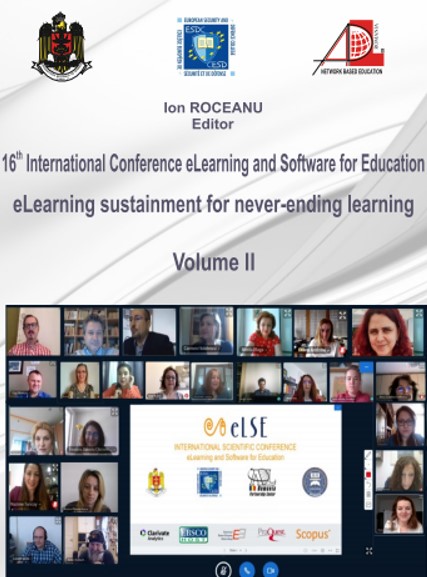LINGUODIDACTIC ASPECT OF PROFESSIONALLY ORIENTED LEXICAL COMPETENCE FORMING TO TECHNICAL UNIVERSITY STUDENTS WITH USING ICT
LINGUODIDACTIC ASPECT OF PROFESSIONALLY ORIENTED LEXICAL COMPETENCE FORMING TO TECHNICAL UNIVERSITY STUDENTS WITH USING ICT
Author(s): Yekaterina A. Lomakina, Olesya V. Kisel, Natalya N. ZerkinaSubject(s): Foreign languages learning, Lexis, Language acquisition, Higher Education , ICT Information and Communications Technologies, Distance learning / e-learning, Pedagogy
Published by: Carol I National Defence University Publishing House
Keywords: E-learning; competence; ICT; vocabulary; grammar material;
Summary/Abstract: The modern society, state and the situation in such areas as economics, technology politics require a proper knowledge of foreign languages from the future specialist, which is undoubtedly a competitive advantage when applying for a job. The purpose of this paper is to consider the issue of vocabulary teaching to students at non-linguistic faculties and universities. The relevance of this study is up to the altering requirements for a future university graduate, who must be able to make a successful communication in different spheres speaking at least one foreign language. The novelty of the study is a comprehensive description of the problems associated with teaching the foreign language vocabulary. The vocabulary being the most important part of the language material, largely determines the content of training. Speaking about the forms of a word, there means not only its sound form. Material and methods of research are analysis of domestic and foreign literature in the field of linguistics, lingua didactics, methods of teaching the foreign language vocabulary; survey on the experience of teaching the foreign language professionally-oriented vocabulary at non-language faculties and generalization of the personal experience; The use of ICT at foreign language lessons at a non-linguistic university significantly simplifies the process of memorizing material (vocabulary and grammar material), increases the efficiency of interaction between a teacher and a student. The interactive forms of educational resources increase the motivation and interest of students in the subject. Such forms of work contribute to good learning of the material, increasing the information and communication competencies of teachers and students.
Journal: Conference proceedings of »eLearning and Software for Education« (eLSE)
- Issue Year: 16/2020
- Issue No: 02
- Page Range: 390-397
- Page Count: 8
- Language: English

